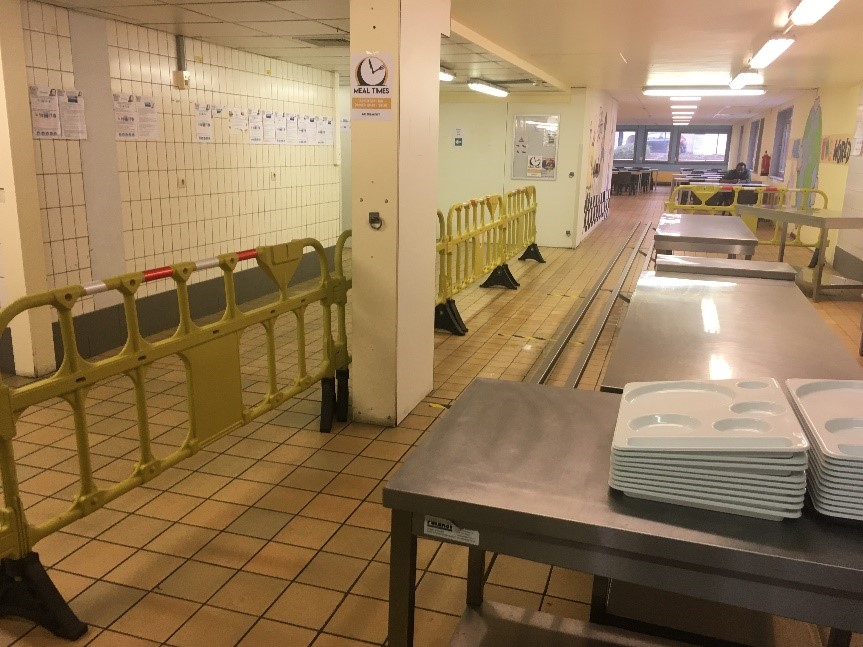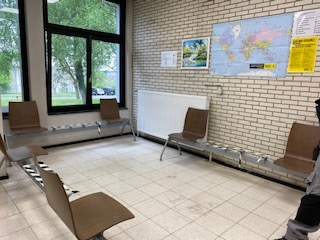Asylum reception during the pandemic: How can systems become more resilient?
By Caitlin Katsiaficas and Martin Wagner, ICMPD
The Covid-19 pandemic has resulted in a number of far-reaching impacts on daily life across Europe, and asylum systems are no exception. With the outbreak, the accommodation of applicants and beneficiaries of international protection in reception facilities has posed several concerns related to the health and care of both residents and staff which have spurred a host of changes across European reception systems and facilities – with important implications for residents. Reception is a key first step in providing an effective solution to displacement for asylum seekers in Europe. It is not only part of a state’s obligation to provide protection and access to asylum, it is also the first entry point into receiving societies, providing orientation, accommodation and other key introductory services. Covid-19 has had a significant impact on both the functioning of reception systems and facilities and on the lives of asylum seekers and refugees in reception.
Immobility perpetuates insecurity and a life in ‘limbo’
Social distancing is a huge challenge in centralised accommodation, putting vulnerable individuals particularly at risk. Additionally, the pandemic has shifted attention away from other health issues, including mental health, which may be exacerbated by the pandemic. But beyond (the more obvious) health concerns, the pandemic has also presented a range of other challenges for residents. In many cases, activities such as language classes and internships have been suspended, disrupting not only residents’ routines but also their longer-term integration prospects (a challenge compounded by economic downturn and rising unemployment in receiving societies). Also important to integration and social cohesion are relationships between asylum seekers and refugees and receiving communities – but these have at times soured, worsened by fears related to the pandemic’s spread. Meanwhile, mobility restrictions and public health concerns have also led some systems to pause exits from reception, leading to longer waiting periods in legal insecurity and potential negative mental health effects for residents. However, pushing people out of reception can also lead to challenges, especially when finding a new apartment or a job is made even more difficult by the pandemic. Covid-19 has therefore had shorter- and longer-term implications for residents, of which a prolonged sense of insecurity is a central feature.
“Every emergency, when you are not prepared, exposes the weakness of the system.” Apostolos Veizis, Médecins Sans Frontières Greece
Reflecting on recent developments, participants in a TRAFIG expert meeting identified the following lessons learnt thus far for strengthening the response of reception systems:
“There will be a new normal after Covid-19, within reception systems as well as the broader asylum system.” -- Michael Kegels, Fedasil, Belgium
Strategic communication, technology and flexibility as potential game changers
While national contexts differ, Covid-19 has had important similarities in its impact on the lives of those in reception across Europe. And although the health situation in Europe has improved, concerns about local outbreaks or a second wave remain and the wait for a vaccine continues. Beyond health concerns, one of the largest impacts of the pandemic has been an intensified and prolonged sense of limbo for residents. Furthermore, there is a danger that imposed changes like limited access to the territory, asylum procedure or reception will not be fully rescinded but instead may be prolonged even under an improved health environment to serve a longer-term political strategy. With Covid-19 the second major shock to reception (and asylum) systems in the past five years, the pandemic provides an important opportunity to reflect and find ways forward to strengthen this key phase in providing durable solutions. Strategic communication efforts and the creative use of technology, combined with increased system flexibility, are some potential game changers that can be leveraged to make reception systems more resilient going forward and to better support residents as they wait to settle in their new communities.

This blog post is inspired by a TRAFIG meeting of reception experts from Belgium, Germany, Greece and Italy held in June 2020. The discussion of the impact of Covid-19 on reception systems and residents touched upon several of TRAFIG’s central themes, namely 1) the complexity of navigating within aid and asylum governance regimes; 2) living in limbo, including the legal and psychological insecurity and immobility that it entails; and 3) the importance of fostering good relations between displaced persons and hosts.
The pictures show Covid-19 adaptation measures in an asylum reception facility in Belgium. Photos courtesy of Fedasil, Belgium.


The views and opinions expressed in this blog do not necessarily reflect the opinion of the TRAFIG Consortium or the European Commission (EC). TRAFIG is not responsible for any use that may be made of the information contained therein.